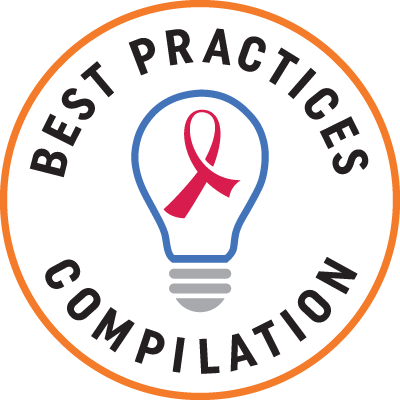Adherence
On
Adherence to prescribed treatment plans is critical for their success, and adherence support is a key component of medical case management services.
Website
- AETC National Coordinating Resource Center (NCRC)
Best Practices
- Center for Innovation and Engagement
- AIDS Action Foundation
- IHIP
- SPNS Latino Access Initiative, UCSF Center for AIDS Prevention Studies
Technical Assistance
- The central hub of the AETC Program, the clinical training arm of the RWHAP, through HIV curricula, technical support to regional AETCs on practice transformation and best practices, and housing of all AETC-developed tools for HIV clinical staff. Project period: 2019-2024.
Clinician consultation on HCV management, HIV management, perinatal HIV/AIDS, pre-exposure prophylaxis (PrEP), post-exposure prophylaxis, substance use. Project period: 2016-2025.
 Initiative documenting best practice strategies and interventions that have been shown to improve HIV outcomes in a "real world" setting and can be replicated by other programs. Project period: 2021-2024.
Initiative documenting best practice strategies and interventions that have been shown to improve HIV outcomes in a "real world" setting and can be replicated by other programs. Project period: 2021-2024.